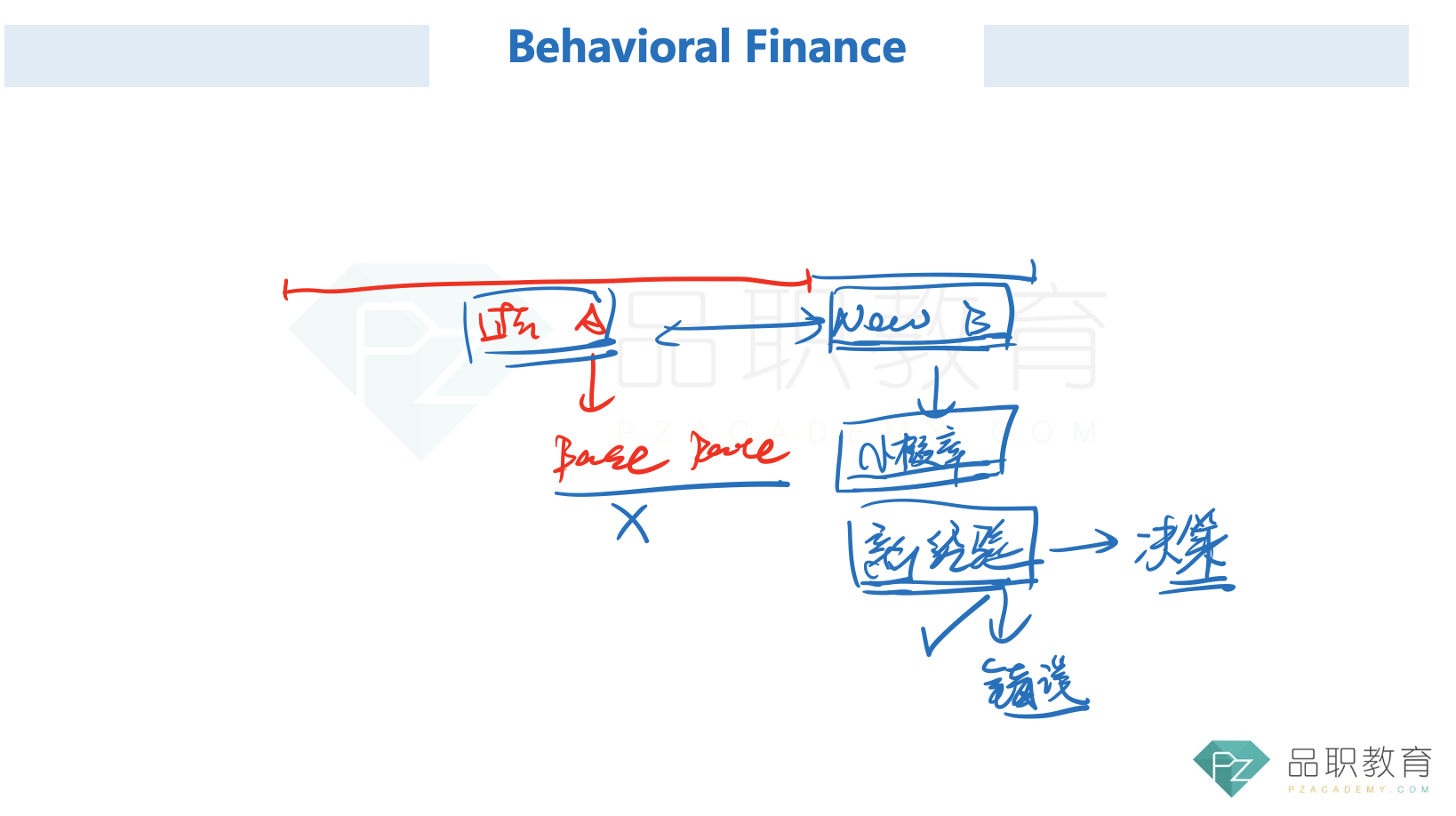李老师解释这个bias的时候强调是基于过去的经验(但是错误)来处理新信息,那么过去事件其实代表了base rate, 为什么反而是base rate neglect呢

王琛_品职助教 · 2023年05月19日
嗨,努力学习的PZer你好:
1
理解 representativeness bias 时,不建议从其偏差定义入手哈,因为很容易混淆 "classify new information based on past experiences and classifications"
建议参考老师上课讲解的思路,即忽略了 base info,而仅根据 new info 形成新的经验,然后基于这个错误的经验做决策
也请参考基础班讲义墨迹版 P41

2
另外,个人建议把 representativeness bias 和 conservatism bias 放到一起辨析
因为两个偏差,都涉及 base information 和 new information
Representativeness 是重视 new information, 轻视 base information, 结果是采纳观点或预测时,几乎完全基于新信息
"Adopt a view or a forecast based almost exclusively on new information or a small sample."
Conservatism bias 是重视 base information,轻视 new information,保持或缓慢地更新一个观点或预测,即使有新的信息出现。
"Maintain or be slow to update a view or a forecast, even when presented with new information."
基础班讲义,专门放了例题,对比了有这两个偏差的投资者的处理方式的差异 (P28、P34)
3
另外,历年真题中,有两道题考查过: [2018-4-B](R1-1.4) , [2017-5-A](R1-1.2)
格式说明: [真题](经典题) 。例: [2018-4-B](R1-1.4) ,即真题 2018 年第 4 题的 B 问,经典题 R1 的 1.4 题
建议同学先把这两道题做一下,解题思路可以听一下经典题老师的讲解,感觉一下协会对 representativeness 的考查
如果备考时间紧张,只听其中一道的讲解即可,另外一道的考法是一样的,只是换了案例背景
----------------------------------------------虽然现在很辛苦,但努力过的感觉真的很好,加油!